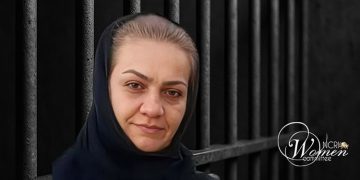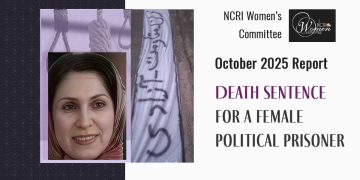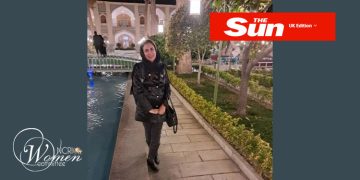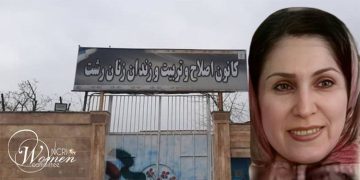On the anniversary of that crime against humanity, the mullahs’ regime executed two PMOI political prisoners—amid growing signs that history is on the verge of repeating itself
In the early hours of Sunday, July 27, 2025—on the eve of the anniversary of the 1988 massacre of over 30,000 political prisoners—two PMOI political prisoners, Behrouz Ehsani and Mehdi Hassani, were executed by the inhuman regime of the mullahs in Ghezel Hesar Prison after three years of torture aimed at extracting forced confessions.
At the height of its weakness and in the final days of its disgraceful rule, the mullahs’ regime sent a clear message with this cowardly act: its primary war is with the people of Iran, and its main concern is to prevent another uprising that could bring down its entire foundation.
This was not merely the silencing of two voices of freedom, but a blatant signal from the regime—a prelude to a new wave of crimes against humanity to preserve its rule.
This year, the anniversary of the 1988 massacre is not just a historical reminder; it is overshadowed by ominous signs of its repetition.

The 1988 Massacre: A Crime Without End or Accountability
The massacre of political prisoners in the summer of 1988 began on July 19, when Khomeini issued a secret fatwa ordering the execution of all prisoners who remained steadfast in their beliefs. Over the following weeks, so-called “death commissions” executed thousands of prisoners without trial—solely for their loyalty to their political convictions.
The clerical regime had begun preparing for this massacre as early as the winter and spring of 1988, transferring prisoners between facilities in the lead-up. On July 20, 1988, prison authorities in Ilam transferred a group of female prisoners out of the facility. That same day, Farah Esmaeili, Hakimeh Rizevandi, Marziyeh Rahmani, Nasrin Rajabi, and Jasoumeh Heydari were executed on a hillside near the village of Shabab in Ilam.
Over 90 percent of the victims were supporters of the People’s Mojahedin Organization of Iran (PMOI/MEK). In many cases, the prisoners had already completed their sentences. Their bodies were buried in mass graves, and their families were left in the dark about their fate.
The international community remained silent at the time—a silence that effectively signaled impunity.
On July 22, 2024, Professor Javaid Rehman, the UN Special Rapporteur on the situation of human rights in Iran, stated in his report that the 1980s executions, including the 1988 massacre, constitute crimes against humanity, genocide, and atrocity crimes.
He stressed that these crimes have continued due to the impunity of those responsible—individuals who still hold top positions of power within the Iranian regime.

Official Glorification of the 1988 Massacre—and a Call for Its Repetition
On July 7, 2025, Fars News Agency—a media outlet affiliated with the Revolutionary Guard Corps (IRGC)—published an editorial titled “Why the 1988 Executions Must Be Repeated,” describing the massacre of political prisoners as a “historic success” and openly calling for the same method to be applied to current prisoners.
This is not merely a threat—it is an official prelude to another state-sponsored crime.
Clear Signs: A Crime in Progress
In recent weeks and months, a new wave of political executions and intensified repression has swept across Iran:
- Farshad Etemadifar, Masoud Jame’i, and Alireza Merdasi: On July 12, 2025, after two years of torture and solitary confinement, all three were sentenced to two death sentences and one year of imprisonment on charges of “enmity against God (moharebeh), assembly and collusion against national security, membership in the PMOI, and propaganda against the regime.”
- At least 11 other political prisoners are currently under death sentences for supporting the PMOI/MEK.
- A large number of political prisoners face imminent execution without due process or fair trials.
- Saeed Massouri, a veteran political prisoner and a key figure in the “Tuesdays Against Executions” campaign, has spent 25 years in prison without a single day of furlough. Following a raid on Saturday, July 26, by 100 prison guards on the political prisoners’ ward in Ghezel Hesar, he was transferred to Zahedan Prison.
- Meanwhile, reports of enforced disappearances of political prisoners such as Arghavan Fallahi, Ali Younesi, and Bijan Kazemi, their relocation to unknown locations, denial of family visits, and mounting pressure on their families are deeply alarming signs.

Repression Driven by Fear of a Popular Uprising
Since the nationwide uprising of 2022, the clerical regime has been in its weakest position in decades.
A crisis of legitimacy, systemic corruption, widespread poverty, and deepening economic and infrastructure failures—such as chronic water and electricity shortages—have fueled explosive public discontent. In response, Ali Khamenei, the mullahs’ supreme leader, has turned to widespread executions and brutal repression as a preemptive measure to suppress potential protests.
The regime is no longer facing only organized activists; it is now up against a bold new generation and an awakened society.
Even regime officials have admitted that their primary battle is not with foreign enemies—but with the people in the streets.
Since Masoud Pezeshkian took office, the number of executions has surged to unprecedented levels.
In less than one year, more than 1,460 people have been executed—including 764 since the start of 2025.
Verbal Condemnation Is Not Enough; The Time for Action Has Come
Silence in the face of these executions is not simply indifference; it is a direct encouragement for the regime to continue its crimes.
The global community’s inaction not only emboldens the clerical regime—now in its most fragile state—to carry out more executions and atrocities, but also fuels its export of terrorism, regional aggression, and nuclear ambitions.

Urgent Call to the International Community
The NCRI Women’s Committee loudly warns:
Another massacre is being planned and carried out. The silence of 1988 must not be repeated.
We demand from the Human Rights Council, the UN High Commissioner for Human Rights, the UN Special Rapporteurs, the European Union, governments, and relevant bodies:
- Explicit and public condemnation of death sentences and incitement to killing
- Taking effective and practical measures, not mere diplomatic condemnations
- Immediate deployment of the independent international fact-finding mission to Iran
- Conditioning any negotiations or political and economic relations with the regime on the cessation of executions and the release of political prisoners
- Legal pursuit of perpetrators and commanders of these crimes, and efforts to end their impunity at the international level
Silence is complicity in crime.
The United Nations, governments, international institutions, and the world’s conscious voices bear responsibility.
The time for action is now—before it is too late.
























